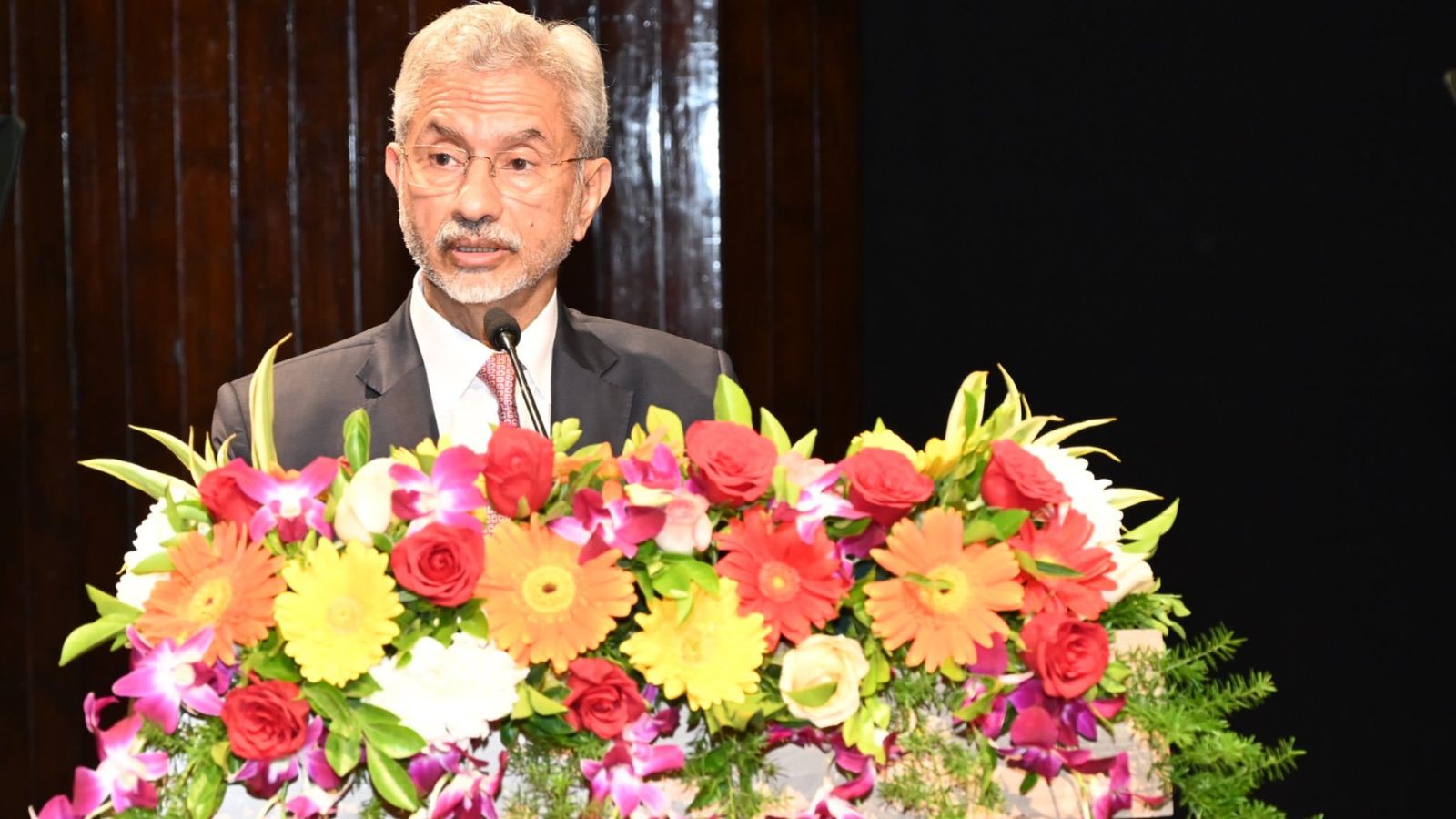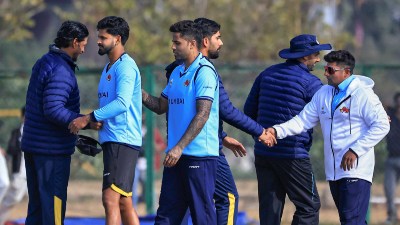Stay updated with the latest - Click here to follow us on Instagram
‘Cancer now consuming its own body politic’: S Jaishankar hits out at Pakistan, reflects on China challenge
Addressing the 19th Nani A Palkhivala Memorial Lecture External Affairs Minister S Jaishankar said India confronts a ‘particular challenge in establishing equilibrium with China’.
 Jaishankar addressing the 19th Nani A Palkhivala Memorial Lecture in Mumbai. (Image: X)
Jaishankar addressing the 19th Nani A Palkhivala Memorial Lecture in Mumbai. (Image: X)External Affairs Minister S Jaishankar on Saturday hit out at Pakistan for its “support to cross-border terrorism” and said that “that cancer is now consuming its own body politic”.
Jaishankar made the remarks while addressing the 19th Nani A Palkhivala Memorial Lecture in Mumbai. He also weighed in on Indo-China relations, saying India has to prepare for China’s growing capabilities, “particularly those that directly impinge on our interests”.
“Pakistan is an exception in our neighbourhood in view of its support to cross-border terrorism. That cancer is now consuming its own body politic. The entire subcontinent has a shared interest in Pakistan abjuring that approach,” Jaishankar said.
Jaishankar also broadly outlined the global challenges due to “the weaponization of market instruments and financial institutions”.
“The challenge for India is to undertake its rise in such unpredictable circumstances. To do that, it has to accelerate both its internal growth and modernisation as well as de-risk its external exposure. At home, that is best done through political stability, broad-based and inclusive growth and continuing reforms. It means more focus on manufacturing, food and health security as well as building deep strengths that would make us more competitive,” Jaishankar said.
Referring to India’s ties with China, Jaishankar said that “right now, the relationship is trying to disentangle itself from the complications arising from the 2020 (border) policy”.
“India confronts a particular challenge in establishing equilibrium with China. Much of that arises from the fact that both nations are on the rise as immediate neighbours and the only two societies with over a billion people. Their dynamics could never have been easy. It has been further sharpened by the boundary dispute, by some baggage of history, and by some socio-political system. Misreading by past policymakers, whether driven by ideology or real politics, has helped neither cooperation nor competition. However, this has changed in the last decade,” he emphasised.
Reiterating India’s growing relevance amid increased global volatility, Jaishankar attributed this to having strong political leadership, arguing, “A successful election with a renewed mandate for a third term clearly caught the world’s attention.”
India’s challenge, he pointed out, has been to rebuild a neighbourhood in the aftermath of the Partition. “It is now doing so through a generous and non-reciprocal approach, funding and supporting energy, rail and road connectivity, expanding trade and investment,” he said.
“It is also a reality that political developments may throw up complex situations as we are witnessing in Bangladesh,” Jaishankar said, adding, “The very purpose of closer contact and cooperation is to address such contingencies.”
On India-Russia ties, Jaishankar said that despite the ups and downs, Russia has held importance for India’s policy since 1945. “This is actually one relationship that has largely held steady,” he said. “Currently, as Russia is redirecting its attention towards Asia, there is a further logic that is emerging. Deeper economic cooperation between India and Russia has a stabilising consequence for the global economy through potential collaborations. India’s expanding footprint will meet Russia’s influence in many regions,” Jaishankar added.
“Like the rest of the world, India is not impervious to the ongoing conflict with Ukraine. It has been a persistent advocate of dialogue and diplomacy and is convinced that a solution cannot emerge from battle,” he said.
Jaishankar said that India’s approach can be summed up in terms of “the three mutuals – mutual respect, mutual sensitivity and mutual interests”. “Bilateral ties can also benefit from a greater realisation that what is at stake is actually the larger prospect of both nations…,” he added.
Jaishankar said that India sees itself as a “Vishwa Bandhu” or a friend of all and a reliable partner of global strategic ties. “Polarised situations have also brought out our ability to bridge divides,” he asserted.






